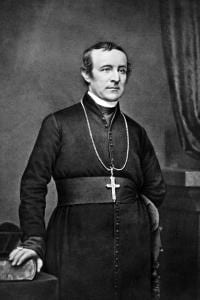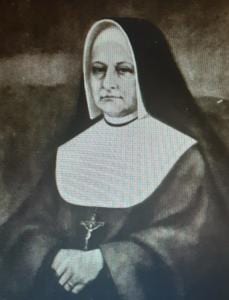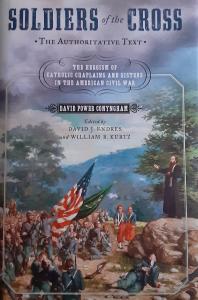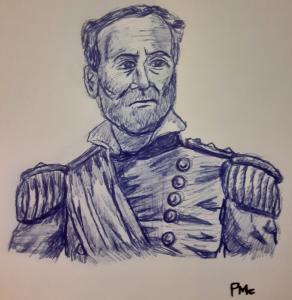A Minister’s Tribute to Their Work in the Civil War.
As chaplain of the United States flagship Lancaster, stationed in the Harbor of Key West, I visited the hospitals to which the sick and wounded men were sent from both army and navy. At the beginning of hostilities the Convent of Mary Immaculate had been offered and accepted as a hospital and was known as the general hospital. The Sisters of Charity who gave the use of the convent are known as the Sisters of the Holy Names of Jesus and Mary. Their work had been teaching, but when was declared and they thought of the comforts of their convent which fortunately is situated in the coolest place in that hot, dusty city, they decided to share their blessings with the sick and wounded men who could nowhere else secure them. Their decision was beautiful in its unselfishness, for not only did they who offered the use of their convent become faithful nurses, but they asked no remuneration at the hands of the Government either for the use of the convent or for the services of themselves as nurses, the only stipulation being that the convent should be returned to them at the end of the war in as good condition as when it had been accepted by the Government. As most of the sailors who were sick were sent to this hospital I visited it day after day, and though a Protestant minister, I could not have been more warmly welcomed had I been of their faith.
From inexperience they rapidly advanced until they were nurses to whom might safely be confided the care of even the most dangerous cases. And such nurses! They were veritable angels of mercy in their ministrations to men who were in every degree of sickness and who were suffering from every sort of wound. And the men grew to love their sweet, smiling faces, and they wondered how human beings could treat so gently, and how human hands could so softly brush away the cares from their fevered brows. Then their hands were ever ready to write long letters to the homes that could not otherwise have heard from husbands, fathers and sons whose arms were weakened and whose nerves were unsettled. And they never complained of weariness, though sometimes their faces spoke of overwork in a slight intensified pallor that came from long vigils of watching, that were frequently followed by additional hours of prayer. And they never apparently were dissatisfied, claiming that the pleasure of helping others for Christ’s sake was in itself its own recompense.
Rev. Mr. Helms, in “Christian Advocate” (Methodist)
Henry Coyle, Theodore Mayhew and Frank S. Hickey, eds., Our Church, Her Children and Institutions (Three Volumes) (Boston: Angel Guardian Press, 1908), Vol. 2, 168.

![angelsofbattlefi00bart_0247[1]](https://wp-media.patheos.com/blogs/sites/224/2013/08/angelsofbattlefi00bart_02471-300x234.jpg)










